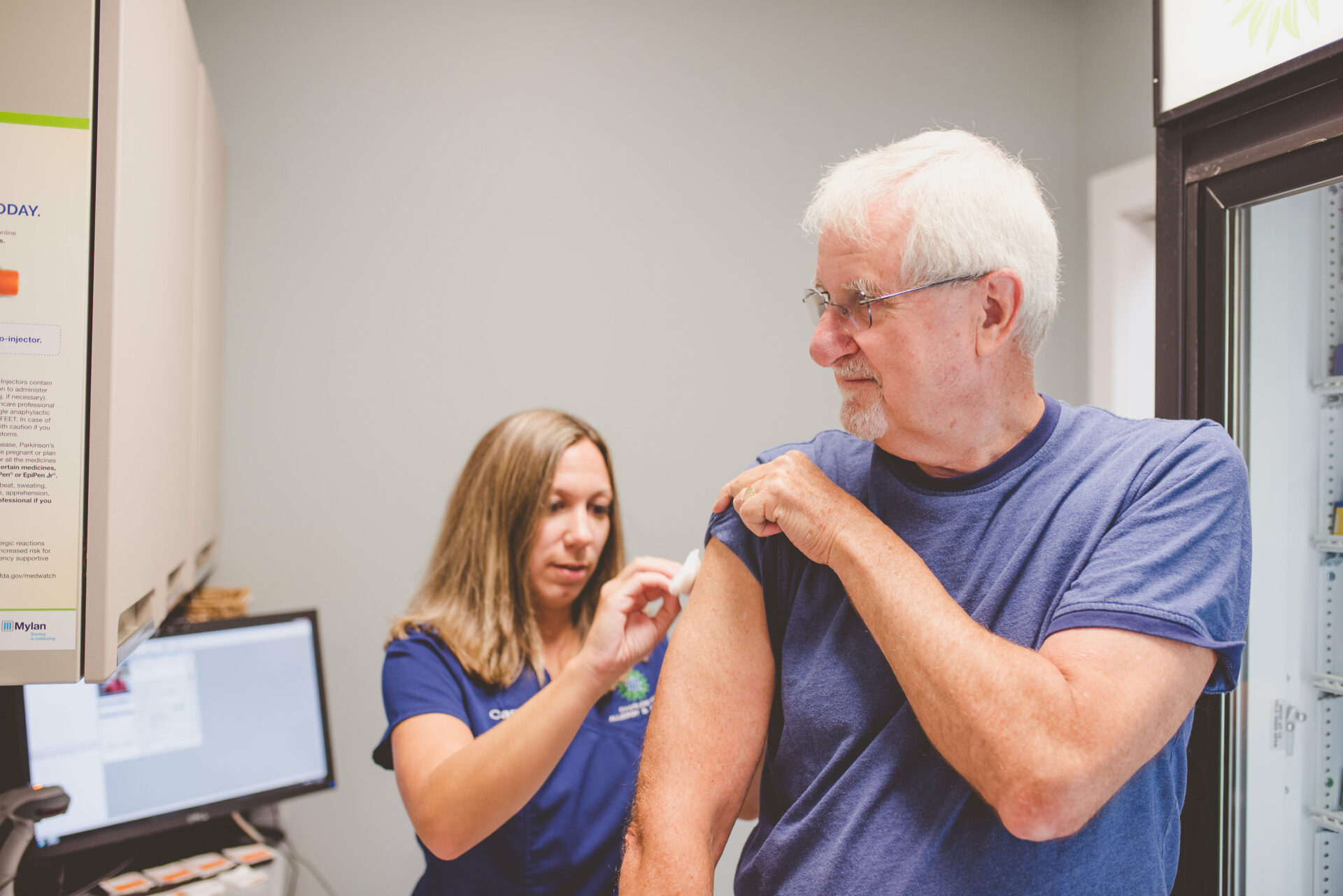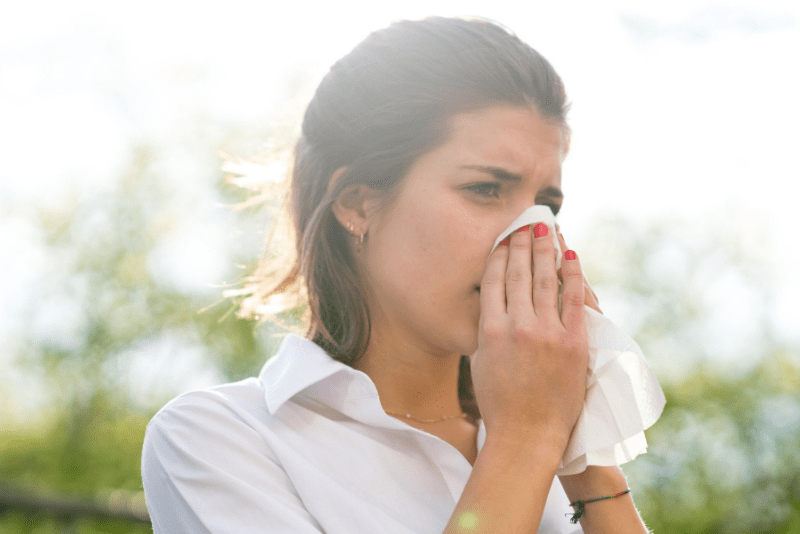Does a simple spring walk make sinus pressure unbearable? Are you fearful that your favorite pet is causing your current symptoms? From sniffles and sneezes to anaphylaxis, allergy symptoms make life complicated. But while this may seem just how life is for the more than 50 million Americans with allergies, there is a solution to stop this unnecessary suffering.
What is immunotherapy?
Unlike over-the-counter medications that offer temporary symptom relief, immunotherapy treatments help your immune system become less sensitive to allergens. This process works by introducing small amounts of allergens into your body over time, gradually increasing the dose until your immune system becomes desensitized to them.
Sublingual immunotherapy (SLIT), also known as allergy tablets, is administered through small tablets placed beneath the tongue – learn more about allergy tablets in our previous blog. On the other hand, subcutaneous immunotherapy (SCIT), commonly known as allergy shots, uses a series of FDA-approved injections to get the job done.
How do allergy shots work?
Allergy shots are a vaccine containing trace amounts of a symptom-causing allergen as determined by your allergy test. Patients undergoing allergy shot treatments develop a tolerance to the specific allergen(s), resulting in significantly decreased symptoms over time. Allergy shots are effective in treating allergies caused by environmental allergens, such as pollen, mold and pet dander, as well as various types of insect venom. Does this mean you are out of luck if you’re experiencing food allergies? Not at all! Oral immunotherapy (OIT) is an option in this instance which serves similar results.
While there is no true allergy cure, immunotherapy is considered the closest solution. And if that wasn’t good enough news, studies also suggest that allergy shots can prevent the development of new allergies in children, as well as the development of childhood asthma.
Are allergy shots safe?
Allergy shots are generally safe and effective when administered under the supervision of a board-certified allergist. However, there is a risk of an allergic reaction to the injection, which can be severe in rare cases. For this reason, allergy shots should only be given in a professional setting where allergy specialists are readily available to administer treatment if needed.
As with all medical treatments, it is important to let your allergist know if you have a history of severe allergic reactions or are taking medications that can affect your immune system, such as steroids or immunosuppressants.
What should you expect during treatment?
During the initial treatment phase, you can expect to visit your allergist’s office one to three times per week to receive your shots. Unlike vaccines (flu, tetanus) which are intramuscular, allergy shots are administered subcutaneously, going just into the top layer of skin. Each injection takes only a few minutes, but you should prepare to wait in the office for about 30 minutes after each shot to ensure you don’t have an allergic reaction.
Mild side effects may occur following the injection, such as redness or swelling at the injection site, itching or hives. These side effects are usually mild and clear up within a few hours.
As treatments progress, the allergen amount introduced will increase while the frequency of the injections decreases. Once you reach the maintenance phase, your injections are typically required just once a month. Your allergist will monitor your progress and adjust your treatment plan as needed.
Are allergy shots for everyone?
Allergy shots are an ideal treatment option for patients whose allergies significantly impact their quality of life or are not effectively managed by medications. Immunotherapy is also a good option for those who want to reduce medication dependence or are concerned about the long-term effects of medication use. For those with venom allergies, allergy shots can significantly reduce your risk of anaphylaxis to future stings.
Allergy shots are generally safe for children and adults. Speak with your local board-certified allergist to determine if this treatment option is your best route to allergy relief.
Begin your journey to allergy symptom relief!
Are you interested in beginning your immunotherapy journey? Our team can help! At Charleston Allergy and Asthma, our board-certified allergy specialists are ready to help Lowcountry patients lose their symptoms and live allergy-free. Contact us today to schedule an appointment and explore our site to learn more about our services.




